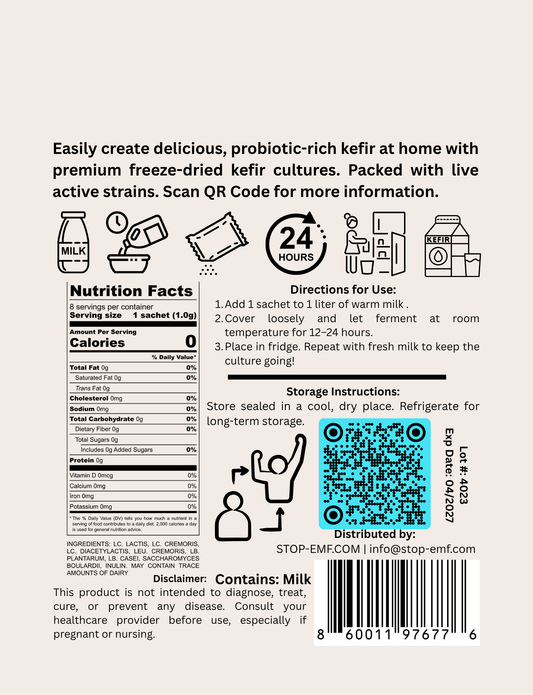As the temperatures drop and the days grow shorter, many of us find ourselves battling a barrage of colds, flu, and other seasonal illnesses. While it's tempting to chalk up these winter woes to the simple fact that we spend more time indoors, the reality is that the cold weather itself can have a profound impact on our immune system's ability to function at its best.
In this comprehensive blog post, we'll delve into the science behind the winter immune system slump, exploring the various ways in which cold temperatures, reduced sunlight exposure, and other seasonal factors can leave us more vulnerable to illness. By understanding the mechanisms at play, we can better equip ourselves to maintain optimal health and resilience throughout the colder months.
The Chilling Effects of Cold on the Immune System
One of the primary ways in which cold weather affects the immune system is through its impact on the respiratory system. The nasal mucosa, which serves as the first line of defense against airborne pathogens, becomes more vulnerable to infection when exposed to cold, dry air. This is because the cold air can disrupt the delicate balance of the mucosa, reducing its ability to trap and eliminate harmful microbes.
Furthermore, the cold can also have a direct impact on the activity of immune cells. Studies have shown that exposure to cold temperatures can lead to a reduction in the number and function of T-cells, a crucial component of the adaptive immune response. This decreased T-cell activity can make it harder for the body to mount an effective defense against invading pathogens.
Vitamin D Deficiency and Immune Dysfunction
Another key factor in the winter immune system slump is the reduction in vitamin D levels. Vitamin D is essential for the proper functioning of the immune system, and it is primarily synthesized in the skin through exposure to sunlight. During the winter months, when daylight hours are shorter and the sun's rays are less intense, many people experience a significant drop in their vitamin D levels.
This vitamin D deficiency can have far-reaching consequences for the immune system. Vitamin D plays a crucial role in the activation and regulation of immune cells, and its absence can lead to a weakened immune response, making individuals more susceptible to infections and illnesses.
The Influence of Cold Air Inhalation
In addition to the direct effects on the respiratory system and vitamin D levels, the inhalation of cold air can also have a detrimental impact on the immune system. When we breathe in cold air, it can cause inflammation and irritation in the airways, which can compromise the immune system's ability to function effectively.
This is particularly problematic for individuals with pre-existing respiratory conditions, such as asthma or chronic obstructive pulmonary disease (COPD), as the cold air can exacerbate their symptoms and make them more vulnerable to respiratory infections.
Seasonal Fluctuations in Gene Expression
Interestingly, the immune system's response to cold weather may also be influenced by seasonal changes in gene expression. Researchers have found that the activity of certain genes involved in immune function can fluctuate throughout the year, with some genes being more active during the winter months.
This seasonal variation in gene expression can lead to changes in the production and activity of immune cells, potentially contributing to the increased susceptibility to illness during the colder seasons.
Adapting to the Winter Chill
While the impact of cold weather on the immune system may seem daunting, there are steps we can take to bolster our defenses and maintain optimal health throughout the winter months.
One of the most important strategies is to ensure adequate vitamin D intake, either through sun exposure (when possible) or through supplementation. Additionally, incorporating immune-boosting nutrients, such as zinc, vitamin C, and elderberry, into our diets can help support the immune system.
Practicing good hygiene, such as frequent handwashing and avoiding close contact with sick individuals, can also go a long way in reducing the risk of infection. And for those with respiratory conditions, taking precautions to protect the airways from the cold, such as wearing a scarf or mask, can be particularly beneficial.
By understanding the complex interplay between cold weather and the immune system, we can better equip ourselves to navigate the winter season with resilience and vitality. By prioritizing our health and taking proactive measures, we can emerge from the colder months stronger and more prepared to face the challenges that lie ahead.
Conclusion
The winter months can be a challenging time for the immune system, with a variety of environmental and physiological factors contributing to the increased susceptibility to illness. From the impact of cold air on the respiratory system to the role of vitamin D deficiency, the science behind the winter immune system slump is both fascinating and crucial to understand.
By arming ourselves with this knowledge and implementing targeted strategies to support our immune function, we can not only survive the winter chill but thrive in it. So, let's embrace the changing seasons with a renewed appreciation for the remarkable adaptability of the human body and a commitment to maintaining our health and well-being, no matter the weather.






